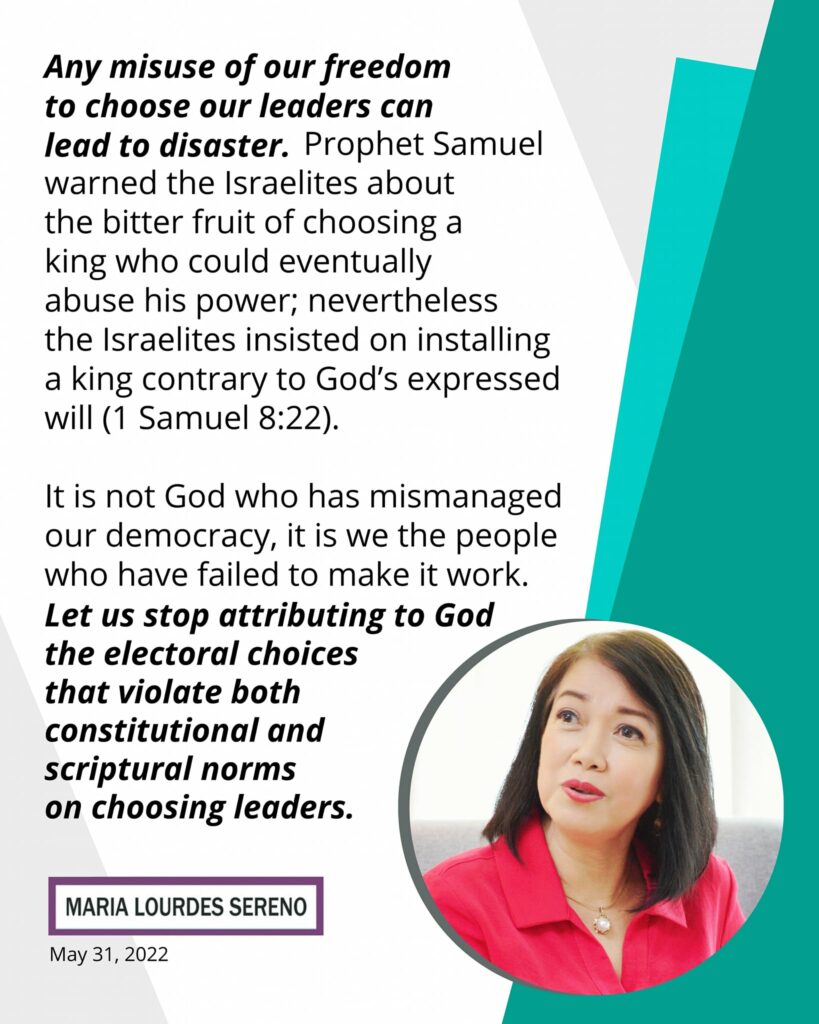The Question is: What then Should We Do?
By Maria Lourdes Sereno

In the last several months, people may have been given the impression that there are important portions of the Bible that contradict other parts, and that scriptures could even be used to downplay gross public sins.
The public was presented with seemingly contrasting applications of scriptures—with respect to the concepts of forgiveness versus accountability; a judgmental spirit versus faithfully seeking justice; and the son not being blamed for the sins of the father versus the son profiting from the ill-gotten wealth of the father.
One does not need to be a well-studied theologian to be able to discern the wisest interpretation of these seemingly contradictory teachings. One reliable approach is to draw the correct interpretation from the character of God. Since God cannot lie, and can never be untrue to His character, then we must dig into the Word to understand who He presents Himself to be.
For example, the frequent invocation of forgiveness to let the Marcoses off the hook effectively ignores the implications of God’s character as the God of Justice. From the Bible’s very strong insistence on justice, it is clear that until recompense is made for the lives and families destroyed during Martial Law, and the entire loot from the people is restored by the family of Ferdinand Marcos Sr., then justice is not satisfied. In fact, there is a continuing violation of the law on the mandatory payment of estate and income taxes by his son, the president-elect, which by itself is continuing injustice. There is something morally amiss for a nation to be led by a family that continues to refuse to restore things to their rightful place. Even the electoral choice by the majority to restore the Marcoses to power does not make things right. There are grave long-term consequences to the present unrectified state of affairs. The president-elect can do a lot to rectify the unresolved grave wrongs to the nation.
Yes, democracy allows unjust results from the electoral process. Any misuse of our freedom to choose our leaders can lead to disaster. Samuel warned the Israelites about the bitter fruit of choosing a king who could eventually abuse his power; nevertheless the Israelites insisted on installing a king contrary to God’s expressed will (1 Samuel 8:22).
